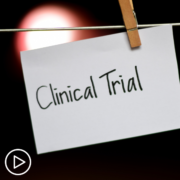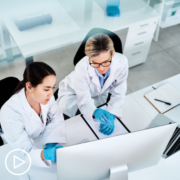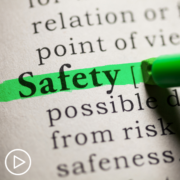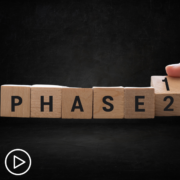Developing CLL Research and Treatment News
Developing CLL Research and Treatment News from Patient Empowerment Network on Vimeo.
CLL expert Dr. Michael Choi provides his perspective on the goals of current CLL clinical trials, discusses approved inhibitor treatments, and shares credible resources to keep up with the latest news in research.
Dr. Michael Choi is a hematologist and medical oncologist at UC San Diego Moores Cancer Center. Learn more about Dr. Choi.
See More from CLL Clinical Trials 201
Related Resources:

Hesitant to Participate in a CLL Clinical Trial? What You Should Know |

|

|
Transcript:
Laura Beth:
Dr. Choi, are there recent advances in CLL treatment and research that you are excited about?
Dr. Choi:
There’s certainly a lot to be excited about as far as new treatments or new understanding of our treatments. What I see as kind of two main aims of trials right now for our patients with CLL, one is to figure out the optimal way to treat patients, especially in the first line of treatment.
For the past few years, we’ve had two very clear options, two very clear standards, a BTK inhibitor or the combination of venetoclax and a CD20 antibody. And so, right now, there are a couple of trials both in the states and internationally that are for the first time really comparing those head-to-head. At UCSD, we’re eagerly hoping to join one of those trials as well, and so this will help us and help our patients kind of really know which of those options make the most sense for maybe different subgroups of patients.
I guess the other main emphasis is to have new therapies available to patients in case these existing standards stop working. And fortunately, this is not a common occurrence. Resistance to BTK inhibitors and Bcl-2 inhibitors is not common, fortunately. But we have to be ready with something if that does occur for our patients.
Certainly, there’s a lot of enthusiasm for the next generation of BTK inhibitors, cellular therapies like CAR-T therapy, and other classes of medications. So, while I hope most of my patients never need those drugs or never need those trials, I think it’s important that we have those available.
Laura Beth:
How can patients keep up to date on developing CLL research?
Dr. Choi:
Oh, that’s a great question. I guess I sometimes ask that same question of myself. How can I stay updated on all the developments and discoveries. Yeah, I guess, yeah, certainly talking to your doctors about what other options there may be. Sometimes, that’s maybe the simplest question to ask.
Yeah, I wish online things were a little bit more straightforward. When I go onto clinicaltrials.gov, I pull up hundreds of different CLL trials, some that might not be relevant for all of my patients. I think The Leukemia & Lymphoma Society and other societies and your group as well have done a great job communicating what some of the most promising areas of research are.









